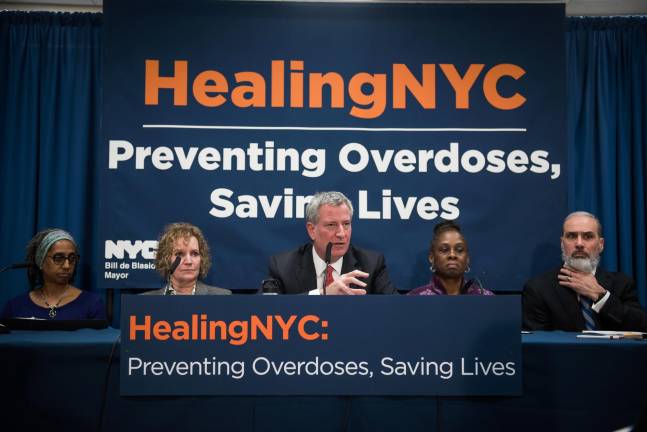Overdose Deaths Down In NYC
The general trend is positive, but fatalities are up among New Yorkers aged 55 to 84

Overdose deaths in New York City declined slightly last year after years of alarming increases, health officials said.
There were 1,444 fatal overdoses citywide last year, down 2.6% from 2017, according to data the city Health Department is releasing Monday. The number had been rising since 2010, when it was a comparatively low 541.
``The decrease in drug overdose deaths is promising,'' Health Commissioner Dr. Oxiris Barbot said in a statement, ``but far too many New Yorkers are still dying.''
Indeed, fatal overdoses rose last year in some demographics and areas: in the Bronx, Manhattan and Staten Island, and among 55-to-84-year-olds, for instance.
The overdose numbers don't include suicides or homicides, if there were any.
The overall downturn mirrors what appears to be a national trend: The federal Centers for Disease Control and Prevention said last month that preliminary numbers show U.S. overdose deaths last year likely fell for the first time in nearly three decades.
The U.S. has been experiencing its deadliest drug overdose epidemic, fueled by an opioid abuse crisis that began with prescription painkillers and has seen an increased use of street drugs such as heroin and illicit fentanyl.
About 80% of New York City's overdose deaths last year involved some form of opioid, the health department said. Cocaine was a factor in over half the deaths. The percentages add up to more than 100 because many lethal overdoses involve multiple substances.
Around the country, officials have tried to combat the overdose epidemic with a range of strategies: tougher policing, treatment program expansion, limitations on opioid painkiller prescribing and wider distribution of the overdose-reversing drug naloxone, among other steps.
Experts have said a surge in naloxone prescriptions, particularly, could be a reason that deadly overdoses have stopped rising nationally.
New York City has distributed 230,000 naloxone kits in two years and has conducted overdose prevention training in hundreds of communities, pharmacies and other places, the health department said. Officials also have trained 1,800 physicians to qualify to prescribe the anti-addiction drug buprenorphine.